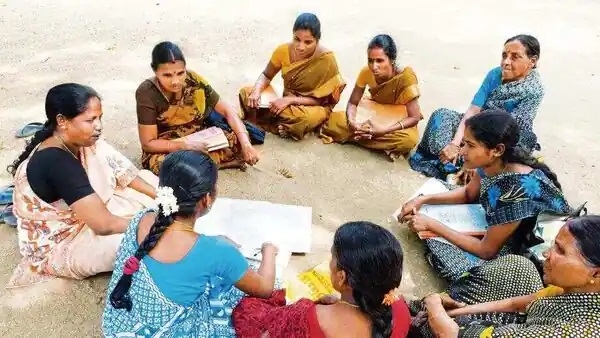HER Self Help Group
HER SHGS: Self-help groups play a big role in the empowerment of women.
“Millions of women in our hamlets know what unemployment means... Give them access to economic activities and they will have access to power and self-confidence to which they hitherto have been strangers," said Mahatma Gandhi in Young India (1930).

Nearly a century has passed, and despite the multidimensional growth that India has achieved, his concerns remain relevant even today. Although women constitute almost half of India’s population, still they are largely excluded from participating in economic activities and decision-making, as well as lack access to resources for health, nutrition, education, etc. This exclusion and discrimination are reflected in low female labour force participation rates, with India recording a meagre 22.3% in 2021 in comparison with 30.3% in 1990.
In the context of increased importance being given to innovation, technology and self-sustenance, especially in a post-covid era, economically weaker sections have faced an acute loss of jobs and income. Even though women have the potential to contribute to household finances, they often do not have the liberty to participate in decisions related to income generation, resulting in the brink of poverty.
In a country that is at the cusp of a rapid transformation in terms of evolving employment opportunities, urbanization and innovation, female participation in the economy remains crucial. Though working women account for approximately 432 million, about 343 million are not in formal job roles or work. An estimated 324 million of them are not in the labour force, and another 19 million are part of the labour force but not employed. Hence, the nature of employment among women is either not accounted for in the formal economy, or women end up not having access to formal jobs due to existing socio-cultural complexities. In a society with deep-rooted patriarchy, even if women want to attain employment, the dominant tradition of domestic responsibility coupled with social stigma limits their economic advancement and access to opportunities in comparison with their male equivalents.

